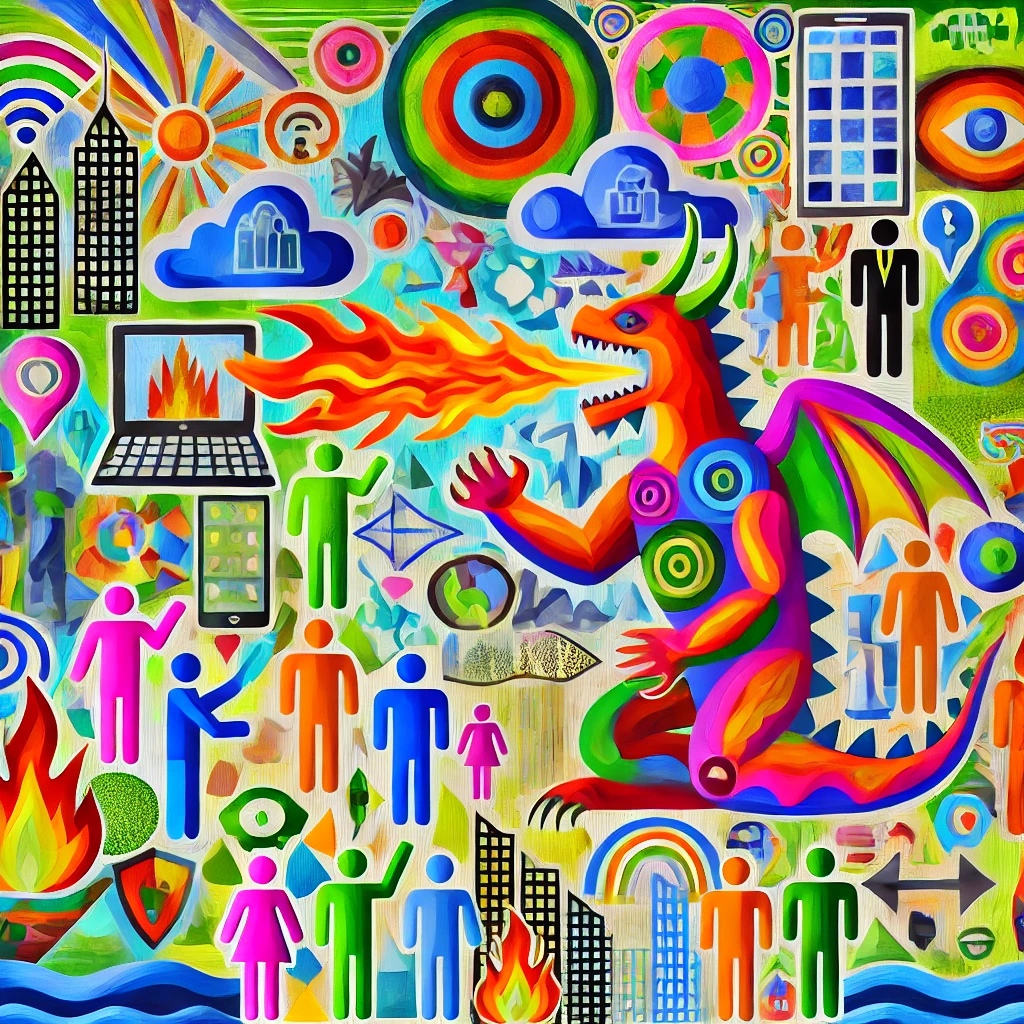I’ve been talking about the meaning crisis a lot. But most people that I talk to have never heard of it. That puts me in the position of having to define it in clear, simple terms. I need an elevator pitch for the meaning crisis — a definition that will suffice for a casual conversation. However, the problem with such a definition is that so much nuance is lost in simplification. The meaning crisis is an incredibly complex, multifaceted issue. So let’s start with some simple definitions, then add more layers.
simple definitions
The meaning crisis is an epidemic of meaninglessness.
We often speak of an individual experiencing an existential crisis. The meaning crisis is an existential crisis on a larger scale — at the level of society.
The meaning crisis is the widespread sense of disconnection, nihilism, and lack of purpose that many experience in the face of materialism, consumerism, and the decline of traditional religious and philosophical frameworks.
metacrisis
Daniel Schmachtenberger has popularized the term “metacrisis” — multiple crises that are interdependent upon one another:
- Environmental Crisis: Degradation of ecosystems, loss of biodiversity, climate change, and resource depletion, which threaten the sustainability of life on Earth.
- Political Crisis: Widespread political polarization, dysfunction in governance, corruption, and the inability of existing political systems to address complex global challenges.
- Economic Crisis: Inequities in wealth distribution, unsustainable economic models, the prioritization of short-term profit over long-term wellbeing, and global financial instability.
- Crisis of Meaning: A deep existential crisis where individuals and societies grapple with a loss of purpose, community, and a coherent narrative, leading to widespread mental health issues, loneliness, and societal fragmentation.
- Technological Crisis: The rapid advancement of technology outpacing our wisdom in its use, leading to ethical concerns, potential misuse of AI, surveillance, and unintended consequences like mass unemployment due to automation.
- Information Crisis: Misinformation, disinformation, and the breakdown of trust in media, knowledge institutions, and epistemic systems, making it difficult to distinguish truth from falsehood.
- Meta-epistemological Crisis: The deeper crisis underlying the others, where our frameworks for understanding and solving problems (epistemology) are themselves inadequate, fragmented, or misleading. This includes the challenge of reconciling different worldviews and cognitive biases.
John Vervaeke also speaks of the meaning crisis as being interdependent on other crises:
We are in the midst of a mental health crisis. There are increases in anxiety disorders, depression, despair. Suicide rates are going up in North America, parts of Europe, other parts of the world. And that mental health crisis is itself due to and engaged with crises in the environment and the political system. And those in turn are enmeshed within a deeper cultural historical crisis. I call it the meaning crisis.
John Vervaeke, Awakening From The Meaning Crisis
historical roots
While the meaning crisis seems to be reaching a climax, it has been in the works for a long time. In fact, Vervaeke begins his historical analysis with the Neolithic Revolution and ends it with “the pseudo-religious ideologies that have drenched the world in blood” in the 19th and 20th centuries (presumably referring to Nazism and communism). In my view, the historical periods/events that stand out the most are the Enlightenment, the Scientific Revolution, and the Industrial Revolution. These events represent a complete upheaval and uprooting of the way humans had lived for many centuries. Our way of looking at the world changed. We became more materialist, rationalist, individualist, and secularist. In what Max Weber famously called The Great Disenchantment, the sacred and the subjective became marginalized in favor of the scientific worldview, which reduces reality to that which can be observed and measured empirically. And our way of living began to change as we left our ancestral villages and moved to cities to work in factories. So we were separated from important sources of meaning: the sacred, community, and nature.
conclusion
In conclusion, the meaning crisis is a cultural crisis in which individuals and societies have become disconnected from traditional sources of meaning due to various historical developments. This post is only meant to be a problem statement, which is why I excluded possible solutions to this crisis. However, I do want to be clear that I don’t think the solution is primitivism, i.e., a simple return to old ways. I don’t think any of us want to live like a medieval peasant. Much progress has been made since then. Materially speaking, we are far better off than we have ever been. This material progress tempts some people to dismiss the meaning crisis altogether. But that is a mistake. What’s interesting is that despite our newfound material comfort, our lives have become less meaningful. But I believe that any solution involves moving forward, not backwards. As an example, we need to re-integrate the sacred into our lives, but that does not mean a return to the organized religions of old. Perhaps the path forward looks like technopaganism: using technology to experience the sacred, whether through meditation apps or god helmets.

Leave a Reply